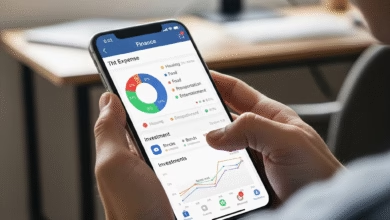What are car insurance quotes?
Understand everything about car insurance quotes and how to apply

Getting car insurance is a crucial step for any vehicle owner, but the process of figuring out how much it will cost can sometimes feel like a mystery. That’s where car insurance quotes come in. Understanding what these quotes are, what influences them, and how to effectively shop for them can save you a significant amount of money and ensure you get the right coverage. Let’s demystify car insurance quotes together!
What Exactly are Car Insurance Quotes? Your Price Tag for Protection

A car insurance quote is simply an estimate of how much you would pay for a specific auto insurance policy. When you request a quote, you provide an insurance company (or a comparison platform) with various details about yourself, your driving history, and your vehicle. Based on this information, the insurer calculates a projected premium – the amount you’d pay, typically monthly or semi-annually, for your coverage. It’s a personalized price tag reflecting your unique risk profile.
Why Are Car Insurance Quotes So Important? Your Key to Smart Spending
Car insurance quotes are more than just numbers; they are essential tools for:
- Comparison Shopping: They allow you to compare prices from different insurance providers for similar levels of coverage. This is crucial because premiums for the exact same coverage can vary wildly between companies.
- Budgeting: Getting quotes helps you understand the potential cost of insurance, allowing you to factor it into your overall budget before buying a car or renewing a policy.
- Understanding Coverage Options: While getting a quote, you’ll often see different coverage types and limits. This process helps you learn about what’s available and decide what’s right for you.
- Finding Discounts: As you go through the quote process, insurers often highlight potential discounts you might qualify for, helping you reduce your premium.
- Informed Decision-Making: Ultimately, quotes empower you to make an informed decision, ensuring you get adequate protection without overpaying.
What Factors Influence Your Car Insurance Quote? The Science Behind the Price

Many elements go into calculating your individual car insurance quote. Insurers assess these factors to determine your risk level – how likely you are to file a claim.
- Your Driving Record: This is paramount. A history of accidents, traffic violations (like speeding tickets), or DUIs will almost certainly lead to higher quotes. A clean driving record is your best asset.
- Your Vehicle Information: The make, model, year, safety features, and even the color of your car can affect your quote. Sports cars or luxury vehicles generally cost more to insure than sedans, and cars with higher theft rates can also lead to higher premiums.
- Your Location: Where you live, and even where you park your car, matters. Urban areas with higher traffic density, crime rates, or extreme weather events typically have higher insurance costs than rural areas.
- Your Age and Gender: Younger, less experienced drivers (especially teenagers and those in their early 20s) typically face higher premiums due to a statistically higher risk of accidents. Rates tend to decrease with age, up to a certain point.
- Your Credit History (in some regions): In many places (though not all), insurance companies use a “credit-based insurance score” to predict the likelihood of future claims. A good credit score can often result in lower premiums.
- Annual Mileage: The more miles you drive, the higher your exposure to risk, which can result in a higher quote.
- Desired Coverage Levels and Deductibles: The more coverage you opt for (e.g., higher liability limits, comprehensive, collision), the higher your premium will be. Conversely, choosing a higher deductible (the amount you pay out-of-pocket before insurance kicks in) will typically lower your quote.
- Past Claims History: If you’ve filed previous insurance claims, especially recent ones, your quotes may be higher.
How to Get Car Insurance Quotes: A Simple Step-by-Step Process
Getting quotes is easier than ever. Here’s how to go about it:
- Gather Your Information: Before you start, have all the necessary details handy for yourself and any other drivers you want on the policy:
- Full names, dates of birth, and driver’s license numbers.
- Vehicle Identification Numbers (VINs) for all cars you want to insure.
- Current odometer readings for your vehicles.
- Information about any past accidents, traffic violations, or insurance claims.
- Your current insurance policy details (if applicable).
- Decide on Your Desired Coverage: While you’ll refine this, have a general idea of the types of coverage (liability, collision, comprehensive, etc.) and limits you’re looking for. This helps ensure you’re comparing apples to apples.
- Choose Your Method: You have several options for obtaining quotes:
- Online Comparison Websites: These sites allow you to fill out one form and receive multiple quotes from various insurers simultaneously. This is often the quickest way to get a broad overview.
- Direct from Insurers: Visit the websites of individual insurance companies you’re interested in (e.g., Progressive, GEICO, State Farm, Liberty Mutual). Most offer online quote tools.
- Independent Insurance Agents: An independent agent works with several insurance companies and can shop around for you, providing personalized advice and comparing quotes. This can be very helpful for complex situations.
- Be Thorough and Honest: Provide accurate information. Inaccurate details can lead to an invalid quote or even policy cancellation later.
- Review and Compare: Don’t just look at the bottom line. Compare:
- Total Premium: The overall cost.
- Coverage Limits: Ensure they meet your needs and legal requirements.
- Deductibles: How much you’ll pay out of pocket for a claim.
- Available Discounts: See if you qualify for multi-policy, good driver, good student, or other discounts.
- Customer Service Ratings: Research the company’s reputation for claims handling and customer service.
- Ask Questions: If anything is unclear, don’t hesitate to contact the insurance company or agent for clarification.
Tips for Lowering Your Car Insurance Quotes and Finding the Best Deal

- Shop Around Annually: Your rates can change. Get new quotes every year or two, even if you’re happy with your current insurer.
- Bundle Policies: Many companies offer discounts if you combine auto insurance with home, renters, or life insurance.
- Maintain a Clean Driving Record: This is the most impactful way to keep your premiums low over time.
- Increase Your Deductible: If you have an emergency fund, opting for a higher deductible can significantly lower your premium.
- Improve Your Credit Score: If applicable in your region, a better credit score can lead to lower rates.
- Ask About Discounts: Always inquire about every possible discount.
- Choose Your Car Wisely: Research insurance costs for a vehicle before you buy it.
- Consider Usage-Based Insurance: Some insurers offer programs that track your driving habits (via an app or device) and reward safe driving with discounts.
By understanding how car insurance quotes work and actively engaging in the shopping process, you empower yourself to find excellent coverage at the most competitive price. Drive safely and save smartly!





